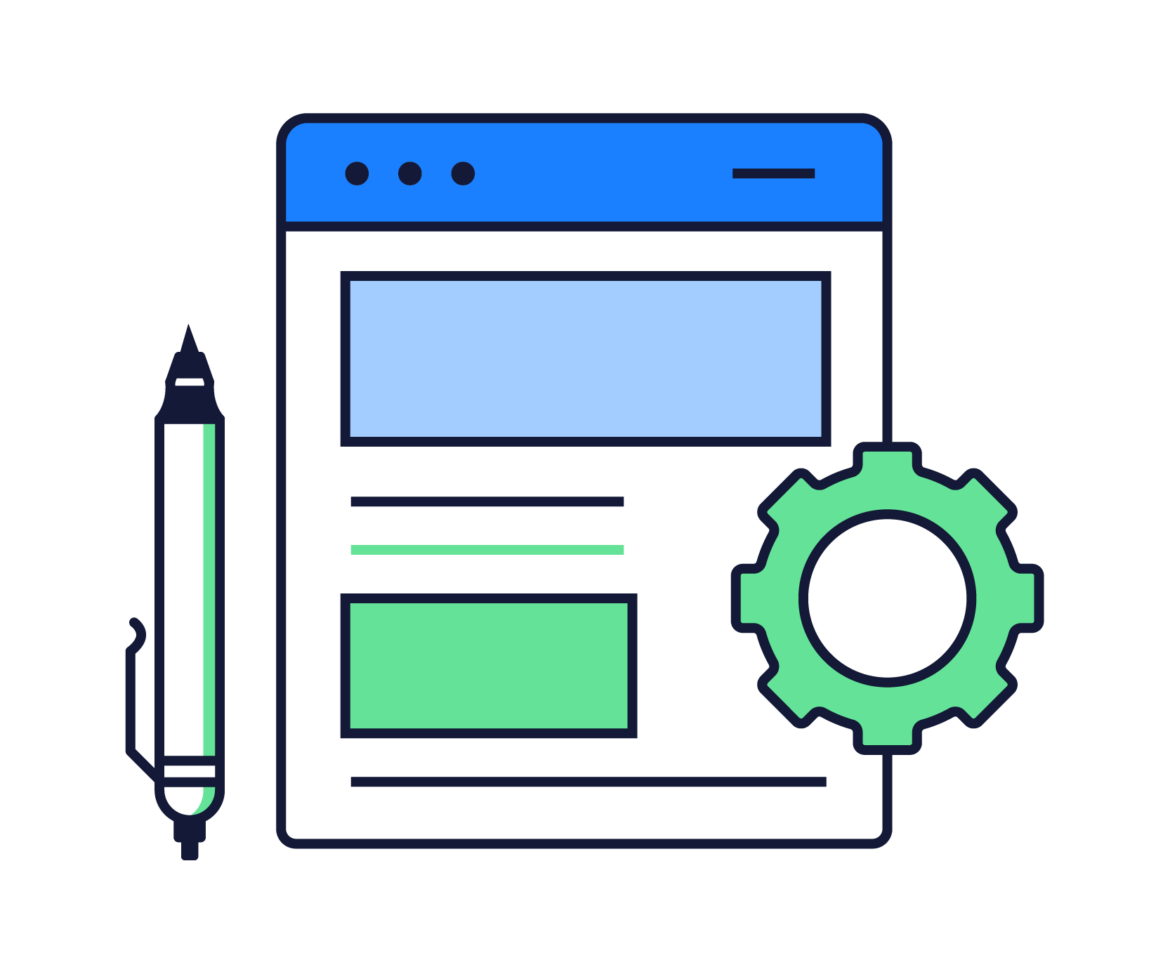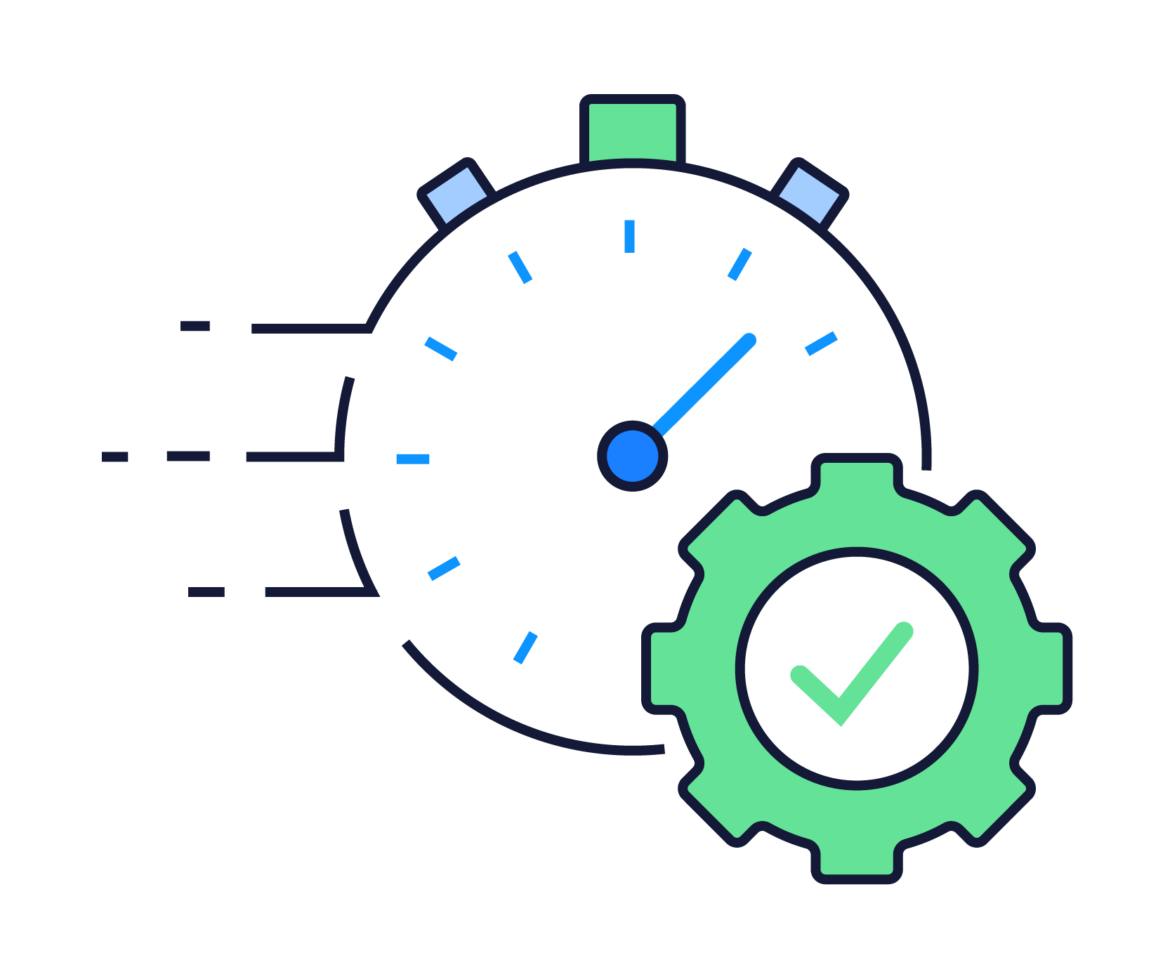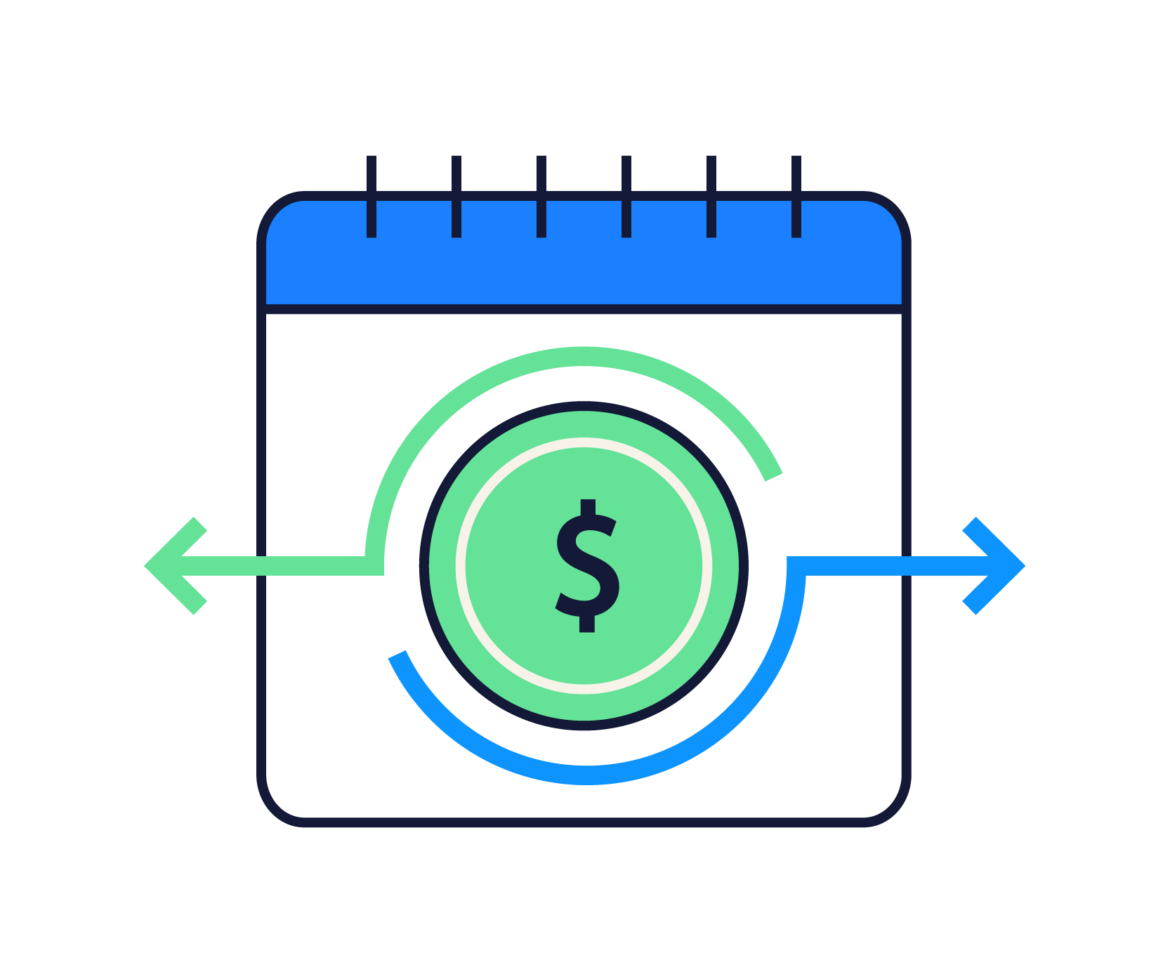Fast, Flexible
Business Term Loans
We’re dedicated to helping small business owners like you secure the financing they need to succeed.

Easy Application Process
Secure the Funds You Need for Your Business Growth
Need a business loan to fuel your growth?

Easy Application Process

Fast Approval Process

Flexible Repayment
Customized repayment plansto meet your needs.

Quick Funding
of approval!
What Are Business Term Loans?
Business Term Loans are fixed-amount financing solutions that provide businesses with a lump sum of capital, repayable over a predetermined period at a fixed or variable interest rate. These loans are specifically designed to meet the strategic funding needs of small and medium-sized businesses looking to invest in growth opportunities, purchase equipment, refinance existing debt, or manage cash flow challenges.
The structure of Business Term Loans offers several key advantages over other financing options. First, they provide predictable monthly payments that make budgeting and financial planning straightforward. Second, the fixed loan amount allows businesses to secure substantial capital upfront without the uncertainty of fluctuating credit limits. Finally, the established repayment schedule helps businesses build credit history through consistent, timely payments.
These loans typically range from $25,000 to $500,000, with repayment terms extending from one to seven years depending on the loan amount and intended use. The longer repayment periods associated with Business Term Loans result in lower monthly payments compared to shorter-term financing options, preserving your business’s cash flow for day-to-day operations.
Term Loans for Small Business: Fueling Entrepreneurial Growth
Term Loans for Small Business represent one of the most accessible and practical financing solutions for entrepreneurs and growing companies. Small businesses often face unique challenges when seeking funding, including limited credit history, seasonal cash flow variations, and the need for substantial capital investments that can’t be covered by daily revenue.
Key Benefits for Small Businesses
Small business owners benefit significantly from the stability and predictability that term loans provide. Unlike revolving credit facilities, these loans offer a clear path to debt freedom with defined end dates. This structure is particularly valuable for small businesses that need to plan their finances carefully and demonstrate fiscal responsibility to stakeholders, suppliers, and future lenders.
The application process for Term Loans for Small Business is typically more straightforward than traditional bank loans, with many lenders offering online applications and faster approval times. This accessibility is crucial for small businesses that need to move quickly on opportunities or address urgent operational needs.
Eligibility Requirements
Most lenders require small businesses to meet specific criteria for term loan approval:
- Minimum credit score of 600-650 (varies by lender)
- At least 12 months in business
- Minimum annual revenue of $50,000-$100,000
- Debt-to-income ratio below 40%
- Positive cash flow for the past 6-12 months
For newer businesses or those with lower revenue requirements, consider our Microloans which offer smaller amounts with more flexible qualification criteria. These requirements are generally more flexible than traditional bank lending standards, making Term Loans for Small Business an attractive option for companies that might not qualify for conventional financing.
Long-Term Business Loans: Strategic Capital for Major Investments
Long-Term Business Loans are specifically designed for businesses planning significant investments or expansions that require substantial capital and extended repayment periods. These loans typically feature terms of three to seven years, making them ideal for major purchases, real estate investments, business acquisitions, or comprehensive renovations.
Strategic Applications
Long-Term Business Loans excel in situations where the investment will generate returns over an extended period. Common uses include:
Equipment and Machinery Purchase: Manufacturing businesses, restaurants, medical practices, and construction companies often require expensive equipment that will serve the business for many years. Long-term financing allows these businesses to spread the cost over the useful life of the equipment.
Real Estate Investment: Whether purchasing a building for your business operations or investing in commercial real estate as a revenue-generating asset, Long-Term Business Loans provide the extended repayment periods necessary for real estate transactions.
Business Expansion: Opening new locations, entering new markets, or significantly scaling operations requires substantial upfront investment. Long-term financing ensures that businesses can execute these growth strategies without straining their cash flow.
Technology Infrastructure: Modern businesses often need to invest in comprehensive technology systems, software licenses, and digital infrastructure that will benefit the company for years to come. For businesses specifically looking to purchase equipment, consider our specialized Equipment Financing options.
Advantages of Extended Terms
The extended repayment periods offered by Long-Term Business Loans provide several strategic advantages. Lower monthly payments preserve cash flow for daily operations and unexpected expenses. The predictable payment structure enables accurate long-term financial planning and budgeting. Additionally, the fixed interest rates common with these loans protect businesses from market fluctuations and interest rate increases.
Types of Business Term Loans
Understanding the different types of Business Term Loans available helps you select the financing structure that best matches your business needs and risk tolerance.
Fixed-Rate Term Loans
Fixed-rate term loans offer interest rates that remain constant throughout the loan term. This structure provides complete payment predictability, making budgeting straightforward and protecting borrowers from interest rate increases. Fixed-rate loans are ideal for businesses that prioritize budget certainty and long-term financial planning.
Variable-Rate Term Loans
Variable-rate term loans feature interest rates that fluctuate based on market conditions or benchmark rates like the Prime Rate. While these loans often start with lower initial rates than fixed-rate options, payments can increase or decrease over time. Variable-rate loans may benefit businesses that expect interest rates to remain stable or decline.
Secured Business Term Loans
Secured term loans require collateral to guarantee the loan, such as real estate, equipment, inventory, or other business assets. The collateral reduces the lender’s risk, typically resulting in lower interest rates and more favorable terms. Secured loans are excellent options for businesses with valuable assets and those seeking the most competitive rates.
Unsecured Business Term Loans
Unsecured term loans don’t require collateral but rely on the business’s creditworthiness and financial strength. While these loans offer faster approval and don’t put assets at risk, they typically feature higher interest rates and stricter qualification requirements. Unsecured loans work well for service businesses or companies without substantial physical assets.
Amortizing Term Loans
Amortizing term loans feature regular payments that include both principal and interest, gradually reducing the loan balance to zero over the term. This structure is the most common type of Business Term Loan and provides a clear payoff schedule. Each payment reduces the principal balance, building equity and improving the business’s balance sheet over time.
Comparing Business Term Loans to Other Financing Options
Selecting the right financing option requires understanding how Business Term Loans compare to alternative funding sources available to businesses.
Business Term Loans vs. Lines of Credit
Business lines of credit provide revolving access to funds up to a predetermined limit, similar to a business credit card. While lines of credit offer flexibility to borrow and repay as needed, they typically feature variable interest rates and require ongoing management. For businesses needing flexible access to funds for operational expenses, our Working Capital Loans provide targeted solutions. Term loans provide larger amounts of capital upfront with fixed repayment schedules, making them better suited for specific projects or investments rather than ongoing operational needs.
Business Term Loans vs. SBA Loans
Small Business Administration (SBA) loans offer government-backed financing with favorable terms and competitive rates. However, SBA loans involve extensive documentation, longer approval processes, and strict usage requirements. Business Term Loans provide faster access to capital with more flexible usage terms, though typically at higher interest rates than SBA financing.
Business Term Loans vs. Equipment Financing
Equipment financing is specifically designed for purchasing business equipment, with the equipment itself serving as collateral. While equipment loans often feature competitive rates and terms, they’re limited to equipment purchases. Business Term Loans offer greater flexibility in fund usage, allowing businesses to address multiple needs with a single loan.
Business Term Loans vs. Working Capital Loans
Working capital loans are designed to address short-term cash flow needs and operational expenses. These loans typically feature shorter terms and faster repayment schedules. For immediate operational funding needs, explore our Working Capital Loans which are specifically designed for day-to-day business expenses. Business Term Loans provide larger amounts of capital over longer periods, making them suitable for growth investments rather than immediate operational needs.
Step-by-Step Application Process for Business Term Loans
Securing a Business Term Loan involves a systematic approach that maximizes your chances of approval while ensuring you obtain the most favorable terms possible.
Step 1: Assess Your Financing Needs
Begin by clearly defining how much capital you need and how you’ll use the funds. Create a detailed budget that outlines the specific investments or expenses the loan will cover. This preparation helps you request an appropriate loan amount and demonstrates to lenders that you have a clear plan for the funds.
Step 2: Review Your Financial Position
Gather and review your business’s financial documents, including profit and loss statements, balance sheets, cash flow projections, and tax returns. Identify any areas that might concern lenders and address them if possible. Check your business and personal credit scores, as both may influence loan approval and terms.
Step 3: Research Lenders and Loan Options
Compare Business Term Loan offerings from multiple lenders, including traditional banks, credit unions, online lenders, and alternative financing companies. Consider factors such as interest rates, fees, repayment terms, approval requirements, and funding speed. Look for lenders that specialize in your industry or business size.
Step 4: Prepare Your Application Package
Compile all required documentation, typically including:
- Completed loan application
- Business financial statements (2-3 years)
- Personal financial statements for business owners
- Business and personal tax returns
- Bank statements (6-12 months)
- Business licenses and registration documents
- Detailed business plan or loan purpose statement
- Collateral documentation (if applicable)
Step 5: Submit Your Application
Complete the application process according to the lender’s requirements, whether online, in-person, or through a business relationship manager. Provide accurate, complete information and respond promptly to any requests for additional documentation or clarification.
Step 6: Review and Negotiate Terms
Once approved, carefully review the loan terms, including interest rate, fees, repayment schedule, and any covenants or restrictions. Don’t hesitate to negotiate terms or ask questions about any aspects you don’t understand. Consider having a financial advisor or attorney review the loan agreement before signing.
Step 7: Close the Loan and Receive Funds
Complete the closing process, which may involve signing final documents, providing additional documentation, or meeting specific conditions. Once closed, funds are typically available within 1-3 business days, depending on the lender and funding method.
Tips to Improve Your Business Term Loan Approval Chances
Maximizing your chances of loan approval requires strategic preparation and attention to the factors lenders consider most important.
Strengthen Your Credit Profile
Your business credit score significantly impacts loan approval and terms. Pay all bills on time, reduce credit utilization rates, and correct any errors on your credit reports. Consider establishing business credit accounts with suppliers and vendors that report to business credit bureaus. Personal credit scores also matter, particularly for smaller businesses or newer companies with limited business credit history.
Demonstrate Financial Stability
Lenders want to see consistent revenue and positive cash flow trends. Organize your financial statements professionally and be prepared to explain any fluctuations in revenue or expenses. Show how your business has weathered challenges and maintained financial stability. If possible, provide forward-looking financial projections that demonstrate your ability to repay the loan.
Prepare Strong Documentation
Complete, accurate documentation shows lenders that you’re serious and professional. Ensure all financial statements are prepared by a qualified accountant and that tax returns are filed on time. Maintain organized records and be prepared to provide additional information quickly if requested.
Offer Collateral When Beneficial
If you have valuable business assets, consider applying for a secured loan. Collateral reduces the lender’s risk and can result in better rates and terms. Real estate, equipment, inventory, and accounts receivable can all serve as collateral, depending on the lender’s requirements.
Show Strong Business Management
Lenders evaluate the management team’s experience and capability. Highlight your industry experience, business education, and track record of success. If your management team has weaknesses, consider adding advisors or board members with relevant expertise.
Maintain Strong Banking Relationships
Work with banks where you have existing relationships and positive account history. Banks prefer lending to businesses they know and trust. Maintain adequate account balances and avoid overdrafts or other banking issues that might concern lenders.
Industry Applications and Use Cases
Business Term Loans serve diverse industries and business needs, with specific applications that maximize their strategic value.
Manufacturing and Industrial Businesses
Manufacturing companies often use Business Term Loans to purchase expensive machinery, expand production facilities, or invest in technology upgrades. The predictable payment structure aligns well with manufacturing businesses’ typically stable cash flows and long-term planning horizons.
Retail and E-commerce
Retail businesses leverage term loans for inventory investments, store renovations, expansion into new locations, or e-commerce platform development. The loans provide the working capital needed to stock seasonal inventory or invest in growth initiatives without straining daily cash flow.
Professional Services
Law firms, accounting practices, consulting companies, and other professional services use term loans to expand office space, hire additional staff, invest in technology, or acquire other practices. The stable payment structure supports these businesses’ project-based revenue models.
Healthcare and Medical Practices
Medical practices, dental offices, and healthcare facilities often require substantial investments in equipment, technology, and facility improvements. Term loans provide the capital needed for these investments while offering repayment terms that align with the equipment’s useful life.
Technology and Software Companies
Technology businesses use term loans to fund product development, expand their teams, invest in marketing, or scale their operations. While these businesses may have less traditional collateral, strong revenue growth and intellectual property can support loan approval. For technology companies with consistent revenue streams, Revenue Based Financing offers an alternative that aligns repayment with actual revenue performance.
Interest Rates and Terms: What to Expect
Understanding typical interest rates and terms for Business Term Loans helps you evaluate loan offers and negotiate effectively.
Interest Rate Ranges
Business Term Loan interest rates typically range from 6% to 30%, depending on various factors including:
- Business credit score and credit history
- Personal credit scores of business owners
- Time in business and industry stability
- Loan amount and term length
- Collateral and security offered
- Current market interest rates
Established businesses with strong credit profiles can expect rates in the lower end of this range, while newer businesses or those with credit challenges may face higher rates.
Term Length Options
Repayment terms for Business Term Loans typically range from 1 to 7 years:
- Short-term (1-2 years): Higher monthly payments but less total interest paid
- Medium-term (3-4 years): Balanced approach with moderate monthly payments
- Long-term (5-7 years): Lower monthly payments but higher total interest costs
The optimal term length depends on your cash flow capacity, the purpose of the funds, and your overall financial strategy.
Fee Structure
Common fees associated with Business Term Loans include:
- Origination fees: 1-5% of the loan amount
- Application fees: $100-$500 (sometimes waived)
- Processing fees: Varies by lender
- Early payoff penalties: May apply to some loans
- Late payment fees: Typically 3-5% of the missed payment
Risk Management and Best Practices
Successfully managing a Business Term Loan requires understanding the risks and implementing best practices throughout the loan term.
Cash Flow Management
Ensure your business maintains adequate cash flow to meet loan payments while supporting daily operations. Create detailed cash flow projections that account for loan payments and monitor actual performance against projections regularly. Consider seasonal fluctuations and plan accordingly.
Loan Covenant Compliance
Many Business Term Loans include financial covenants that require maintaining specific financial ratios or metrics. Understand these requirements fully and monitor compliance regularly. Common covenants include minimum debt service coverage ratios, maximum debt-to-equity ratios, and minimum working capital requirements.
Early Repayment Considerations
If your business generates excess cash flow, consider whether early loan repayment makes financial sense. Some loans include prepayment penalties, while others allow free early repayment. Compare the cost of the loan to alternative investment opportunities when making early repayment decisions.
Insurance and Risk Protection
Maintain adequate business insurance to protect against events that could impair your ability to repay the loan. Consider key person insurance if your business depends heavily on specific individuals. Some lenders may require specific insurance coverage as a loan condition.
Frequently Asked Questions (FAQs)
What are Business Term Loans and how do they work?
Business Term Loans are fixed-amount financing solutions that provide businesses with a lump sum of capital, repayable over a predetermined period with fixed monthly payments. Unlike lines of credit, these loans offer predictable payment schedules and are ideal for specific investments like equipment purchases, expansion projects, or refinancing existing debt.
How much can I borrow with Term Loans for Small Business?
Term Loans for Small Business typically range from $25,000 to $500,000, depending on your business’s revenue, credit score, time in business, and ability to repay. Most lenders require minimum annual revenues of $50,000-$100,000 and at least 12 months in business to qualify for these loan amounts.
What’s the difference between Long-Term Business Loans and short-term financing?
Long-Term Business Loans feature repayment periods of 3-7 years with lower monthly payments, making them ideal for major investments like real estate or equipment. Short-term financing typically has 3-18 month terms with higher monthly payments but faster access to funds, better suited for immediate cash flow needs or seasonal fluctuations.
What credit score do I need for Business Term Loan approval?
Most lenders require a minimum business credit score of 600-650 and personal credit scores of 650+ for Business Term Loan approval. However, some alternative lenders accept lower scores with compensating factors like strong revenue, collateral, or longer time in business. Higher credit scores result in better interest rates and terms.
How quickly can I get approved for a Business Term Loan?
Approval times vary by lender and loan complexity. Online lenders often provide decisions within 24-48 hours, while traditional banks may take 1-4 weeks. Complete applications with organized documentation accelerate the process. Once approved, funding typically occurs within 1-3 business days.
Can I use a Business Term Loan for any business purpose?
Business Term Loans offer flexible usage for most legitimate business purposes including equipment purchases, expansion, working capital, debt refinancing, inventory, marketing, and operational improvements. However, some lenders restrict usage for speculative investments, personal expenses, or paying existing loans from the same lender.
What documents do I need to apply for Term Loans for Small Business?
Required documentation typically includes 2-3 years of business financial statements, business and personal tax returns, bank statements for 6-12 months, business licenses, a detailed business plan or loan purpose statement, and personal financial statements for business owners. Organized, complete documentation improves approval chances.
Are Business Term Loans secured or unsecured?
Business Term Loans are available in both secured and unsecured options. Secured loans require collateral like real estate, equipment, or other assets, typically offering lower interest rates and better terms. Unsecured loans don’t require collateral but generally feature higher rates and stricter qualification requirements.
Take the Next Step: Secure Your Business Term Loan Today
Business Term Loans provide the stable, predictable financing your business needs to achieve its growth objectives. With competitive rates, flexible terms, and loan amounts up to $500,000, these financing solutions offer the foundation for sustainable business expansion and success.
Our streamlined application process delivers fast decisions and quick funding, ensuring you can capitalize on opportunities without delay. Whether you need Term Loans for Small Business to support daily operations and growth or Long-Term Business Loans for major investments and expansion, our expert team will help you find the perfect financing solution.
Ready to fuel your business growth? Contact Clear Skies Capital today to discuss your Business Term Loan options. Our experienced lending specialists will work with you to structure a loan that meets your specific needs and sets your business up for long-term success. Whether you need traditional Business Term Loans or prefer to explore our full range of Small Business Loans, we have the expertise to guide you to the right solution.
Apply now or call to speak with a lending specialist and get your Business Term Loan approved in as little as 4 hours.